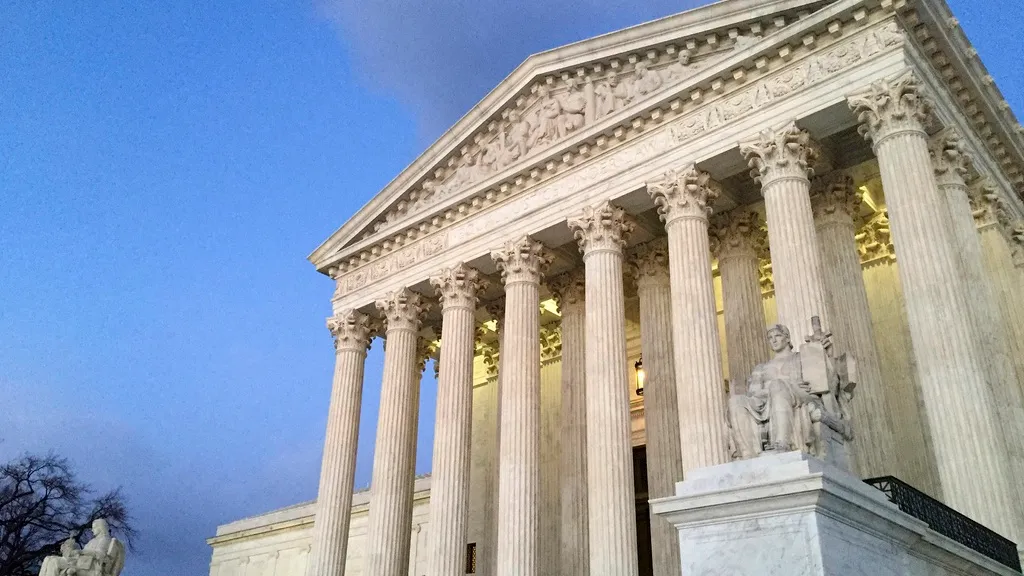May 27, 2011
Tenn. Activist: 2011 "Has Not Been a Very Good Year"
Joseph Erbentraut READ TIME: 4 MIN.
In a move that continues to attract national attention, Tennessee Gov. Bill Haslam signed a controversial provision that overrides the ability of local governments to pass their own anti-discrimination policies that protect additional classes-including LGBT people-into law late on Monday, May 23.
The bill had already passed both the state's House of Representatives and Senate without much dissent and was, until early this week, backed by the state's influential Chamber of Commerce and Industry. Backers of the bill describe the law as simply eliminating unneeded paperwork and regulation.
"I don't really like the state government telling local governments what to do, but I don't really feel like local governments should tell businesses what to do either," Haslam told the Tennessee Report of his support for the bill on Tuesday, May 24. "In this case, we were going beyond what the federal requirements were, and I don't think many Tennesseans feel like we don't have enough mandates on businesses from the federal government."
But LGBT advocates see the measure as clearly discriminatory and have indicated a legal challenge to the measure lies ahead.
Marisa Richmond, president of the Tennessee Transgender Political Coalition, indicated the legislative action was launched in response to an anti-discrimination ordinance passed early last month by the Council of the Metropolitan Government of Nashville and Davidson County. Issued in response to a lesbian soccer coach whom Belmont University abruptly fired late last fall, that ordinance forbade discrimination on the basis of sexual orientation and gender identity among both city and county government and those contracting with both bodies.
Senate Bill 632/House Bill 660 effectively repealed that ordinance, and blocks all queer Tennesseans from having any basis to file a complaint of discrimination with any given municipality in which they live.
"The right wing saw this and said, if we can't stop the ordinance at Nashville, we'll turn to the state legislature," said Richmond.
The law's passage follows on the heels of other anti-LGBT measures in the Tennessee Legislature, including the much-discussed "don't say gay" bill, which bars teachers from discussing homosexuality in the classrooms from kindergarten to eighth grade. The state Senate approved it last week, though it will not become eligible to take effect until at least 2012.
2011 Not "A Very Good Year" for LGBT Tennesseans
The Tennessee legislature has also worked to block revisions to the state's law currently barring individuals from changing the gender listed on their birth certificate without undergoing genital surgery and a psychiatric examination. The inability to do so presents many legal concerns for many trans Tennesseans who choose not to undergo such procedures and is out of steps with many other states that have instituted more progressive policies on the issue in recent years.
"This has not been a very good year for LGBT rights in Tennessee," conceded Richmond. "We're fighting a lot of very tough battles here and we'd like to get as many people engaged in these issues as possible."
Michael Silverman, executive director of the Transgender Legal Defense and Education Fund, said his organization has been closely monitoring the recent happenings in the Volunteer State and noted it is "abundantly clear" who the bills have targeted. He indicated TLDEF is currently developing a legal strategy to challenge the law.
"It is very clear the target here is transgender people and there are direct consequences to the civil rights of the community with the bill's passage," said Silverman.
He added that case law, most notably Romer v. Evans, a U.S. Supreme Court ruling against a similar effort Colorado lawmakers lodged against municipal anti-discrimination laws in the mid-1990s, appears to side with the LGBT community on this matter.
The Chamber of Commerce and Industry issued a statement against the bill only minutes after Haslam signed it into law-though reports indicate they knew of the bill for at least a month prior and had previously supported its passage. The Chamber includes Nissan, AT&T, Whirlpool, DuPont, FedEx, Comcast, Blue Cross Blue Shield and other Tennessee-based companies.
"The Tennessee Chamber supports a standard regulatory environment at the state level as opposed to potentially conflicting local regulations covering employment practices," read the statement. "Because (the bill) has turned into a debate on diversity and inclusiveness - principles which we support - we are now officially opposing this legislation in its present form."
The above statement, in addition to separate responses from many member businesses, is symbolic at best to LGBT activists and their supporters in Tennessee and beyond. Caterpillar in particular refused to back down from their support of the bill in a statement the company issued late Monday.
Garden State Equality on Monday to rescind the honors it had planned to present to AT&T, KPMG and Pfizer at their annual fundraiser next month because the companies serve on the Chamber's Board of Directors.
"Let our message resound everywhere," said Steven Goldstein, chair of Garden State Equality. "You cannot separate workplace policies from greater social responsibility, for laws that cover workplace discrimination directly affect treatment in the company workplace. You cannot boast about being a great company for LGBT equality on 29 days a month, but then work against LGBT equality on the 30th day and expect our appreciation. Equality is an everyday value."
The Family Action Council of Tennessee, however, applauded the measure's passage. It described it as an example of "businesses being saved from over-regulation."
Joseph covers news, arts and entertainment and lives in Chicago. He is the assistant Chicago editor for The Huffington Post. Log on to www.joe-erbentraut.com to read more of his work.



